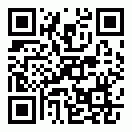
In our first post we answered the question: What is ISO 17025?
The next post we answered the question: Why do we need standards? Why ISO 17025 and policy, procedures and instructions matter.
Today’s post answers the question: Why is ISO 17025 so important to us in forensic science?

- ISO 17025 accreditation
Why is ISO 17025 so important?
It is extremely important for two major reasons: first, ISO 17025 provides for minimum thresholds of acceptable practices for those engaged in testing and calibration[i],[ii]; and second, because more than likely, your laboratory is not ISO 17025 compliant, but it soon might be. On March 31, 2009, a watershed moment in the modern practice of Forensic Science occurred when ASCLD/LAB[iii] announced that it would no longer accredit laboratories through its Legacy program. Instead, it now offers ASCLD/LAB International which it markets as ISO 17025 Plus[iv]. As Legacy programs are forced to become ISO 17025 compliant or risk losing accreditation, the criminal law practitioner, if properly prepared, can seize upon this opportunity to solve some of the problems outlined supra. As crime laboratories come on board with ISO 17025, it will force the otherwise “wild wild west” and “anything goes” styles that are inherent and endemic in certain disciplines within forensic science to become more scientific. This is to not only include analytical measurement based forensic science disciplines such as blood alcohol measurement and mass measurements, but also other para-forensic disciplines such as pattern recognition, forensic firearm and toolmark analysis, fingerprint analysis, and other similar laboratory conducted tests.

- ASCLD/LAB international
The timeframe that makes this article so relevant now is that as ASCLD/LAB has decided to adopt ISO 17025 and no longer offers its Legacy accrediting program all Legacy program laboratories must become ISO 17025 compliant laboratories no later than March 31, 2014 or on April 1, 2014 they will find themselves unaccredited. The transformation from ASCLD/LAB Legacy program to ISO 17025 compliant can be a long one or a remarkably short one depending upon where any particular crime laboratory is at the beginning of the process[v]. A requirement for ASCLD/LAB to grant accreditation based on ISO 17025 compliance is that for the six months preceding the ultimate inspection of the laboratory it must be in compliance with ISO 17025. Even before the application can be made to ASCLD/LAB, a full internal audit must be completed with all forms of ISO 17025 compliance in place. Therefore, at a maximum if a laboratory wishes to be ISO 17025 compliant it must have the structure and the practices of ISO 17025 in place no later than October 30, 2014.
[i] While accreditation does not equate to automatic quality in results, it means that a lab adheres to some sort of external Quality Management System (QMS). How worthwhile that QMS is versus what is necessary in the general scientific community to insure true results is debatable. Just determining whether or not a lab is accredited and by whom is the very beginning of assessing quality of the reported and alleged test result. It should be remembered that these standards are minimum expressions of acceptable practices. A laboratory could and should decide to employ greater standards than the minimum to insure quality of the results issued.
[ii] Section 1.4, the Forward and the Introduction contain useful statements that establish the goals and the scope of the standard.
[iii] ASCLD/LAB is the American Society of Crime Laboratory Directors Laboratory Accreditation Board. It can be found on the internet at www.ascld-lab.org.
[iv] A list of ASCLD/LAB accredited Legacy and International Programs can be found at http://www.ascld-lab.org/accreditedlabs.html
[v] ISO does not offer accreditation itself. The following is an alphabetical list of primary ISO accrediting bodies and comprise the majority of the sources for grants of ISO accreditation: A2LA – American Association for Laboratory Accreditation; ACLASS – Assured Calibration Laboratory Accreditation Select Services; APLAC – Asia Pacific Laboratory Accreditation Cooperation; EA – European Cooperation for Accreditation; IAS – International Accreditation Service; ILAC – International Laboratory Accreditation Cooperation; ILAA – International Laboratory Assessment & Accreditation; L-A-B Laboratory Accreditation Bureau; NACLA – National Cooperation for Laboratory Accreditation; NVLAP – National Voluntary Laboratory Accreditation Program; SCC – Standards Council of Canada. ASCLD/LAB is a secondary or affiliated party with ILAC.



simon says:
i would like to get your clarification if this dept in my country actually have this ISO? and certified??
— Department of Chemistry Malaysia Forensic Division, Petaling Jaya, Malaysia
Legacy / Extension
you can go to the link http://www.ascld-lab.org/labstatus/accreditedlabs.html#malaysia
what does it mean by legacy and extension?? how the cert would be loook like if the dept is certified? is the cert picture when we click legacy and extension is the exact cert dept will received from the board???
appreciate your advise and clear things up/.. i wanna know